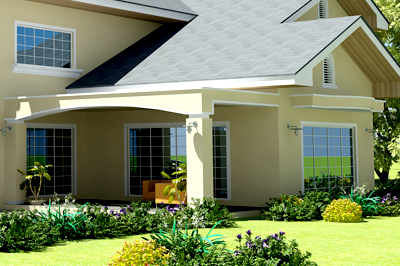image source: multifamilybiz.com
Owning a property is absolutely one of the greatest investments that one could ever think of making in life. It is indeed a great feat, which not everyone can attain, therefore, individuals who have made efforts to buy or build their own houses are always proud of such achievements; and Ghanaians are no exception.
The people of Ghana pride in property ownership, and would go to any length to acquire at least one. Building a house requires a great deal of money. One needs a whooping sum of not less than $100,000 (GHC 250,971 at the time of writing) to embark on such a process. Such an amount is not easy to come by, and it is proven even harder for the average Ghanaians who do not earn much income. Working on an uncompleted house requires extra funds to put finishing touches to it. These situations make mortgages a much sought after in Ghana.
There are many financial institutions which render mortgage services to people interested in buying, building or completing a house.
Prior to applying for a mortgage, it is important to be well informed about the interest rates these financial institutions charge respectively. Furthermore, it is equally essential to apply for the appropriate loan, as there are different types of mortgages for different uses, and all these come with various interest rates ranging from up to 35%-40% in some cases. (:
Different types of mortgages
But, some self-build mortgages release the amount of money required for each stage of the building at the beginning rather than the end of the stage. This is especially useful if you do not have the cash up front to pay your builders or to buy materials.
Self-Build Mortgages tend to have higher rates than on standard mortgages, and the payment spread within 10-20years.
Loans for this purpose normally do not exceed up to 50% of the total construction cost of the property, and the interest rates vary from bank to bank. The property must have reached the lintel level at least. Borrowers of this type of mortgage have a maximum of 15 years to finish payment. Not everyone can apply for a loan. To qualify for a mortgage, you must first ensure that you are not below18 years (some financial institutions have 21 years as minimum) and secondly, not more than 55 years old. There are other issues that need to be considered as well, should you decide to build, buy or complete an uncompleted house with a mortgage.
And to build, buy or complete an uncompleted house with a mortgage, one must:
- Mortgage brokers - There is the need for the person to contact a mortgage broker to help them get a better financial institution or bank with the best interest rate. The borrower can also decide to do his own background checks to pick a suitable mortgage company without necessarily consulting the broker. Therefore, conferring with two or three mortgage companies would be ideal for the borrower to ascertain which company is better and has the best rates.
- Intended purpose - The mortgage loan which has been acquired for the purpose of building, buying, or completing an uncompleted building must be used for the exact purpose. Some people often use the loans for something else other than the intended purpose, and in the end, they lose. Not using an acquired mortgage for the main purpose can bring problems to the borrower. It could lead to a breach of contract between him and his bankers if they found out that he was using the mortgage for something else than what both parties knew of. In this case, the borrower could even be accused of deception.
- Loyalty - There is the need for the borrower to be loyal in his dealings with the mortgage company. Being loyal in this sense includes the importance of the borrower to pay his debt as agreed by both parties (himself and the bankers). The borrower must have a sturdy income, to be assured of his ability to pay his deductions without any unnecessary interruptions. He should be able to provide adequate security for the loan. Paying your debts duly will also help you avoid foreclosure, where the banker will have your property owner reverted to themselves because you are unable to pay back your debts within the given time frame.
- Other source of income - To be on the safer side, the borrower must look for other sources of income. This will help him be in good terms with his bankers even if he loses his job someday. One would still be able to pay back the loan when he has alternate sources of income without being harassed by his bankers when the unfortunate happen.
More often than not, borrowers end up paying as much as 400% of the original amount they borrowed and this takes a toll on them as they are faced with over-burdened financial situations. For this reason, not everyone in Ghana can afford to own a house. In the meanwhile, those who cannot afford to build or buy their own houses are compelled to live in rented apartments and other makeshift buildings which have their own consequences.
The government of Ghana, and the bank of Ghana must as a matter of urgency, intervene on behalf of the people, by putting measures in place to regulate the interest rates to ensure that no one is exploited, in his quest to own a house.














